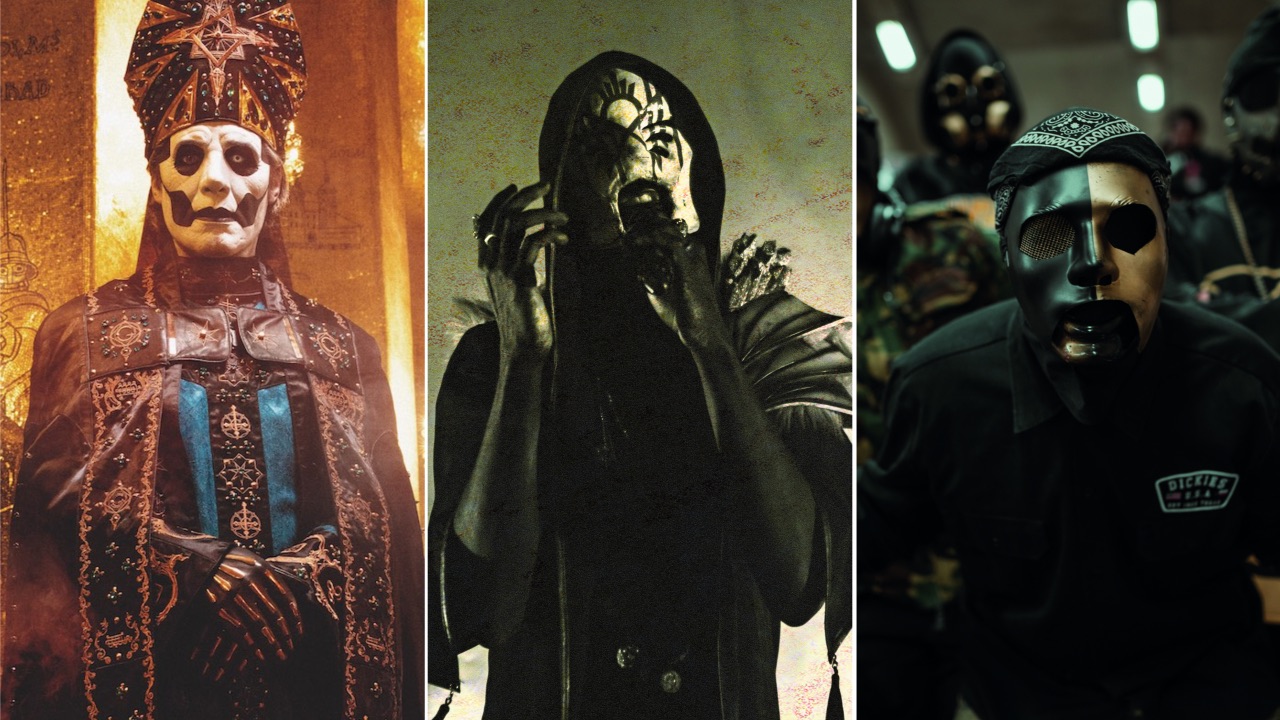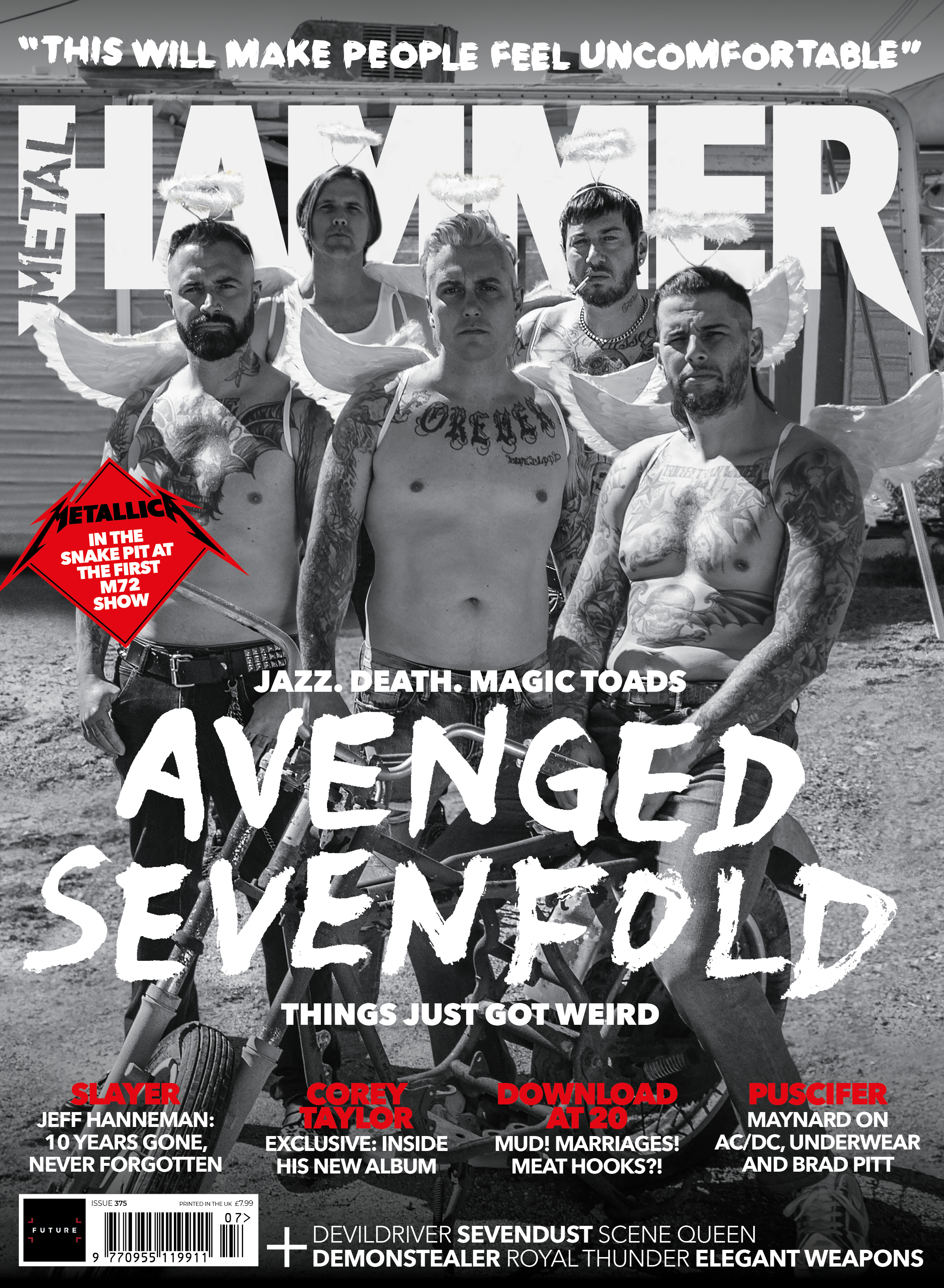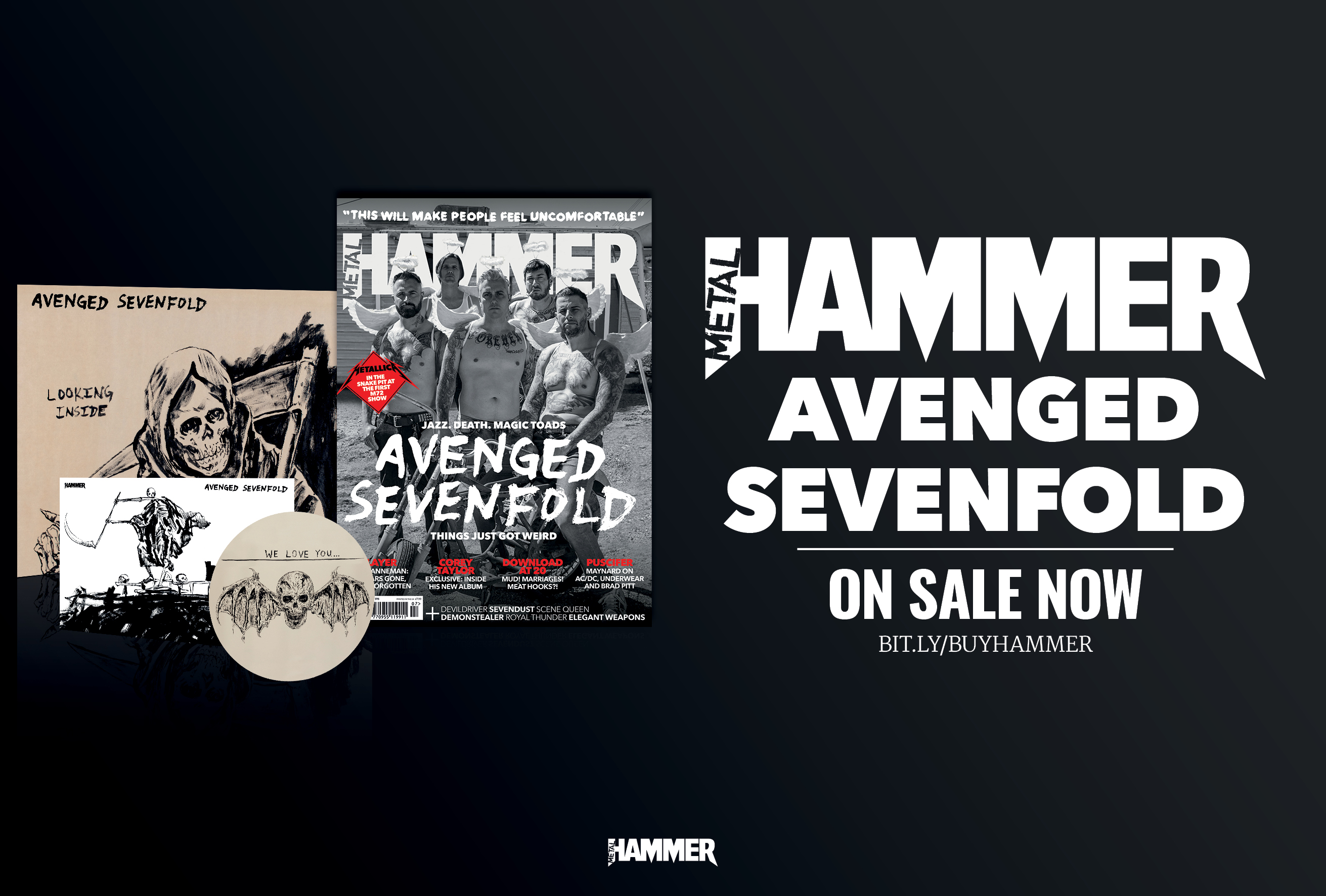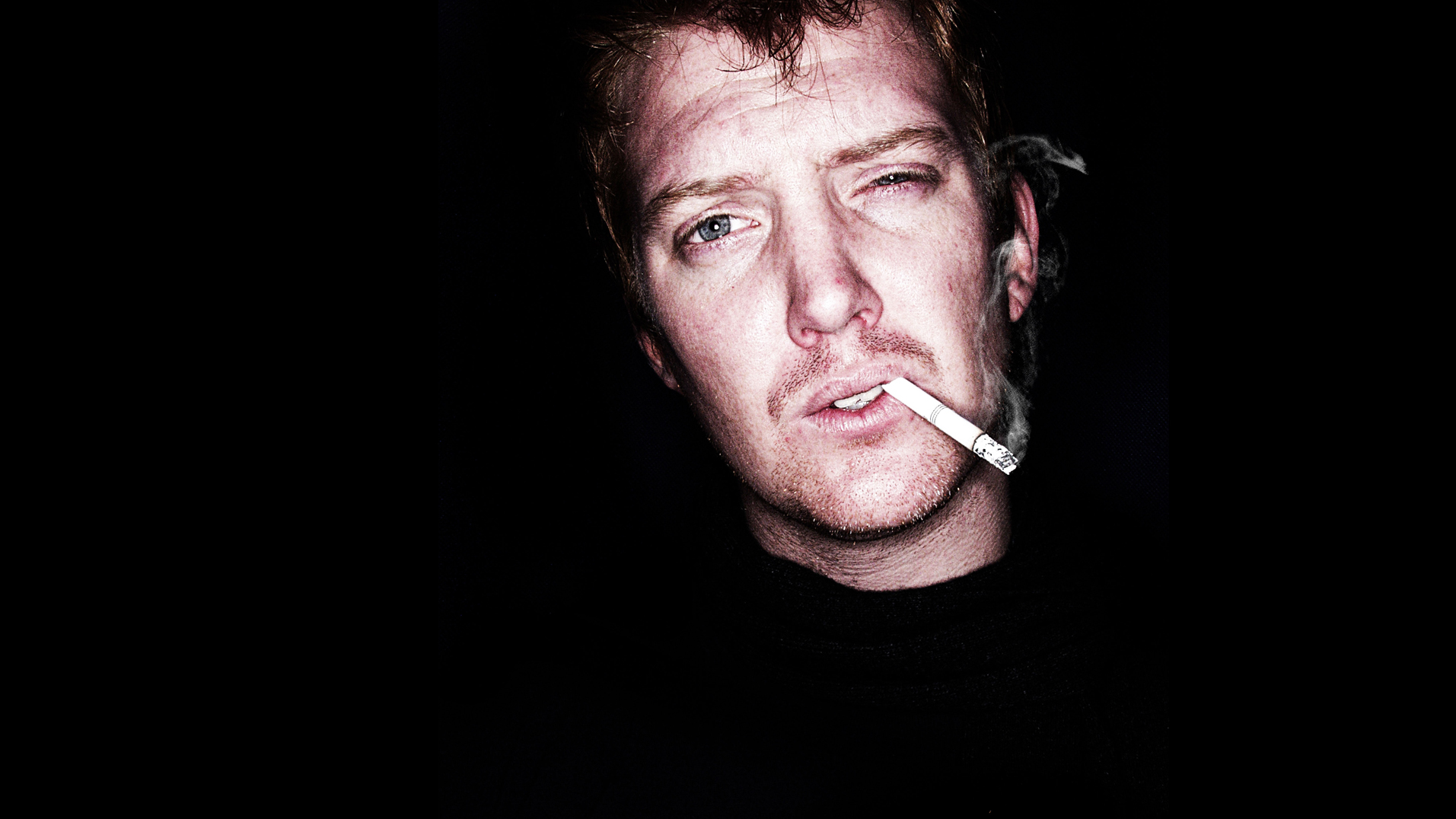Why does metal love bands in masks?
Ghost, Sleep Token, Blackgold, Swollen Teeth - if you want to get noticed in 2023, get a mask

Select the newsletters you’d like to receive. Then, add your email to sign up.
You are now subscribed
Your newsletter sign-up was successful
Want to add more newsletters?

Every Friday
Louder
Louder’s weekly newsletter is jam-packed with the team’s personal highlights from the last seven days, including features, breaking news, reviews and tons of juicy exclusives from the world of alternative music.

Every Friday
Classic Rock
The Classic Rock newsletter is an essential read for the discerning rock fan. Every week we bring you the news, reviews and the very best features and interviews from our extensive archive. Written by rock fans for rock fans.

Every Friday
Metal Hammer
For the last four decades Metal Hammer has been the world’s greatest metal magazine. Created by metalheads for metalheads, ‘Hammer takes you behind the scenes, closer to the action, and nearer to the bands that you love the most.

Every Friday
Prog
The Prog newsletter brings you the very best of Prog Magazine and our website, every Friday. We'll deliver you the very latest news from the Prog universe, informative features and archive material from Prog’s impressive vault.
By the time you read this, Sleep Token will have released Take Me Back To Eden – one of the most anticipated metal albums of 2023. The buzz that’s grown up around the enigmatic nouveau-metallers over the past few years has reached fever pitch, the band’s streaming stats on Spotify exploding from 280,000 monthly listeners in January to more than two million at the time of writing.
Their success follows that of Ghost, the biggest breakout metal band of the last 10 years, whose latest album, Impera, reached No.2 in the US and UK. Further down the food chain, the likes of Imperial Triumphant, Slaughter To Prevail and Gaerea have all been making waves in recent times.
None of these bands sound alike, but they have one key thing in common: they all wear masks. At a point where the metal scene is saturated with bands and artists to the point of facelessness, these groups have taken facelessness to its logical end point. They way to get noticed in 2023, it seems, is to hide your face.
“There’s something to be said for bands who lay it all out on the line, but there’s also a lot of appeal in mystique,” says Nathan Barley Phillips, A&R executive at Nuclear Blast and the man who signed the then-unknown Sleep Token to his previous label, Basick Records, in 2016. “Some music fans want to buy into world-building and character building. They’re forever searching for the secret. They like that chase.”
Masks in rock and metal aren’t a new idea. Kiss were the first band to spin the act of disguising their identity into commercial gold, though the first notable metal artist to fully cover his face was Thunderstick, the infamous, balaclava-clad drummer with NWOBHM footsoldiers Samson. The nu metal era was a boom time for masked bands, with Slipknot and Mushroomhead leading the charge.
“It was never a conscious decision for us: ‘Hey, let’s wear masks,’” says Johnny 3 Tears, singer with LA rap- metallers Hollywood Undead, who sported striking face coverings when they first emerged in the mid-2000s. “We were part of the graffiti scene in Hollywood, where people hide their faces, so we just married that culture with what we were doing with the band.”
The early 2020s have seen a big comeback for masked bands and mystique. Sid Wilson protégés Swollen Teeth, The Prodigy-inspired ‘death electronica’ duo Bone Cult, grandiose London doomsters Sermon and nu metal 2.0 merchants Blackgold are among the newer wave of acts hiding their faces and making waves in the industry. As with their predecessors, each is masking up for different aesthetic and artistic reasons.
Sign up below to get the latest from Metal Hammer, plus exclusive special offers, direct to your inbox!
“For us, it was partly a homage to the nu metal bands we love, but also because music has really got lost with the whole social media thing: how many posts you’re doing, who you’re hanging out with, how trendy you are,” says Blackgold frontman Spookz, whose band’s look involves a combination of face masks, balaclavas and hoodies. “We didn’t want people to care about who we are. I wanted the art to be the most important part.”
Blackgold take enigma to a new level. They soundcheck in balaclavas and refuse to allow people in their dressing room. On a recent tour opening for Limp Bizkit, they kept their faces hidden offstage (“Fred Durst loved it,” says Spookz). According to the singer, even their management don’t know the identities of all five members.
“We’ve had people turn up at our shows in home-made masks and balaclavas,” he says. “I can imagine a time where we get in someone else for a tour – like, a different Spookz – then bring the original one back again after.”
Sporting a mask adds an instant WTF? dimension for any band, though it works differently for each. Enigma is undoubtedly a factor in Sleep Token’s popularity – frontman Vessel refuses to do interviews and hasn’t publicly revealed his identity. Conversely, the careers of Slipknot and Ghost were hardly ruined when it was revealed who was behind their respective masks. But there’s also a danger of masks becoming a gimmick.
“I think the masks did more to hurt us than help us in the beginning,” says Johnny 3 Tears. “Some people would think, ‘Why are they wearing those things? Is it because they can’t play?’”
Hollywood Undead stopped covering their faces full-time in 2018, though their decision to de-mask makes them the exception rather than the rule.
“There are definitely more and more bands doing it,” says Nuclear Blast’s Nathan Barley Phillips of the trend towards masks. “There have been instances where it’s been, ‘Let’s stick masks on because it’s different.’ But it’s not different enough.”
Blackgold’s Spookz rightly points out that the trend will eventually become a parody. “Everything is only a couple of months away from being a meme of itself,” he says. Still, the music business is built on following winning formulas, which suggests we haven’t reached Peak Mask yet. Though artists who think covering their face is a short cut to Sleep Token-style success are likely to be disappointed.
“Bands like Ghost and Sleep Token aren’t successful because they wear masks,” says Nathan Barley Phillips. “They’re successful because they write great music. Masks don’t mean anything if the music isn’t any good.”
This appears in the brand new issue of Metal Hammer, which features Avenged Sevenfold on the cover and comes with three exclusive gifts. Order it online and have is delivered straight to your door


Dave Everley has been writing about and occasionally humming along to music since the early 90s. During that time, he has been Deputy Editor on Kerrang! and Classic Rock, Associate Editor on Q magazine and staff writer/tea boy on Raw, not necessarily in that order. He has written for Metal Hammer, Louder, Prog, the Observer, Select, Mojo, the Evening Standard and the totally legendary Ultrakill. He is still waiting for Billy Gibbons to send him a bottle of hot sauce he was promised several years ago.

